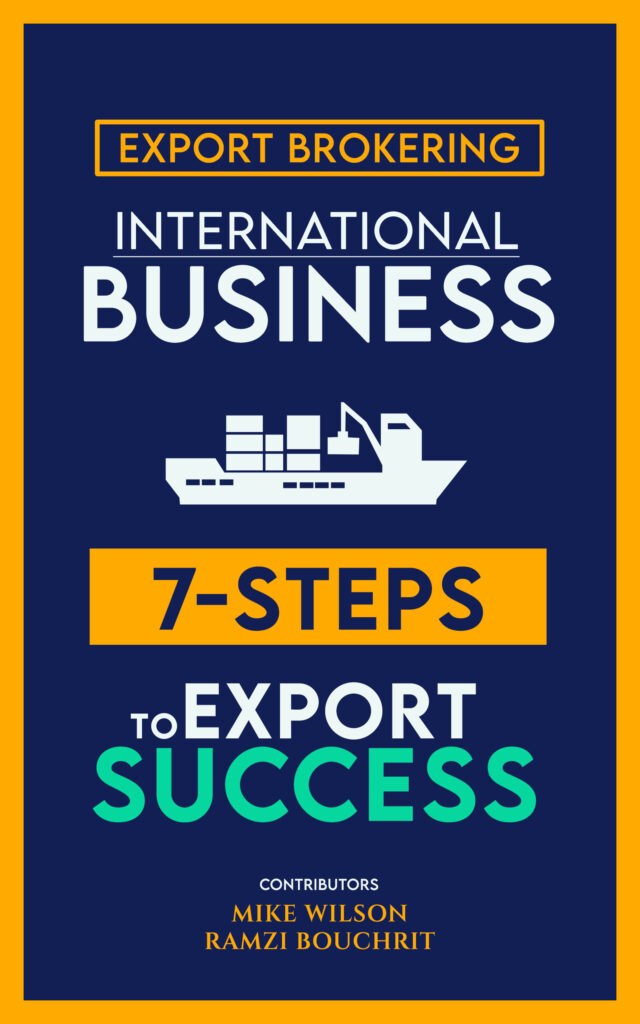The Role of Due Diligence in International Trade Brokerage, learn more below!
| Table of Content |
|---|
| Introduction |
| H1: Understanding the Role of Due Diligence |
| H2: Key Steps in Conducting Due Diligence |
| H3: Researching the Market and Industry |
| H3: Verifying the Legitimacy of Parties Involved |
| H3: Assessing Financial Stability |
| H3: Analyzing Legal and Regulatory Compliance |
| H2: Benefits of Due Diligence in International Trade |
| H3: Minimizing Risks and Avoiding Scams |
| H3: Ensuring Financial Security and Transparency |
| H3: Making Informed Decisions |
| Conclusion |
| FAQs |
Introduction of The Role of Due Diligence in International Trade Brokerage:
Due diligence plays a crucial role in international trade brokerage by ensuring informed decision-making, mitigating risks, and establishing trust between parties involved in trade transactions. In this article, we will delve into the significance of due diligence, the key steps involved, and the benefits it offers for successful international trade.
In this step of “The Export Series” we will show you how to become a successful Import Export (International Trade) broker.

Mr. Ramzi Bouchrit (RB JV Group) has provided us with helpful information based on the different transactions he made with his business partners in the field of the International Trade aka import export. “The Export Series”.
H1: Understanding the Role of Due Diligence
Due diligence refers to the comprehensive assessment and investigation conducted before entering into a business transaction. In the context of international trade brokerage, due diligence helps verify the credibility, legitimacy, and financial stability of potential trade partners, ensuring a secure and reliable trade environment.
H2: Key Steps in Conducting Due Diligence
Conducting due diligence involves a series of critical steps to gather relevant information and assess the various aspects of a trade transaction. Here are the key steps in the due diligence process:
H3: Researching the Market and Industry
Thorough research of the market and industry is essential to understand the dynamics, trends, and potential risks associated with the trade transaction. This step involves gathering information on market demand, competition, regulatory requirements, and industry-specific challenges.
H3: Verifying the Legitimacy of Parties Involved
Verifying the legitimacy of the parties involved is crucial to ensure transparency and trustworthiness. This includes confirming the identities of individuals or companies, checking their business registrations, and verifying their reputation through reliable sources.
H3: Assessing Financial Stability
Assessing the financial stability of potential trade partners is vital to mitigate financial risks. This step involves evaluating their financial statements, creditworthiness, payment history, and assessing their ability to fulfill financial obligations.
H3: Analyzing Legal and Regulatory Compliance
Analyzing legal and regulatory compliance helps ensure adherence to trade laws, regulations, and international trade agreements. This includes reviewing contracts, licenses, permits, and assessing compliance with import/export regulations and customs requirements.
H2: Benefits of Due Diligence in International Trade
Conducting due diligence offers several benefits for international trade brokerage, enabling secure and successful trade transactions. Here are some key advantages:
H3: Minimizing Risks and Avoiding Scams
Due diligence helps identify and minimize risks associated with trade transactions. It helps detect potential scams, fraudulent activities, or misleading representations, safeguarding businesses from financial loss and reputational damage.
H3: Ensuring Financial Security and Transparency
By assessing the financial stability and credibility of trade partners, due diligence ensures financial security and promotes
transparency in international trade. It reduces the likelihood of payment defaults, non-compliance with financial obligations, or hidden financial liabilities.
H3: Making Informed Decisions
One of the primary purposes of due diligence is to gather relevant information and insights to make informed decisions. By conducting thorough due diligence, trade brokers can evaluate the feasibility, profitability, and risks associated with a trade transaction, enabling them to make informed choices that align with their business goals.
Conclusion of the The Role of Due Diligence in International Trade Brokerage
Due diligence plays a vital role in international trade brokerage by ensuring informed decision-making, mitigating risks, and establishing trust among trade partners. By following the key steps of due diligence and reaping its benefits, businesses can navigate the complexities of international trade with confidence and achieve successful trade outcomes.
FAQs
Q1: Why is due diligence important in international trade brokerage?
A1: Due diligence is important in international trade brokerage as it helps verify the credibility and legitimacy of trade partners, mitigate risks, ensure financial security, and make informed decisions for successful trade transactions.
Q2: What are the key steps involved in conducting due diligence?
A2: The key steps in conducting due diligence include researching the market and industry, verifying the legitimacy of parties involved, assessing financial stability, and analyzing legal and regulatory compliance.
Q3: How does due diligence minimize risks in international trade?
A3: Due diligence minimizes risks in international trade by identifying potential scams, fraudulent activities, or misleading representations. It helps businesses avoid financial loss and reputational damage.
Q4: Can due diligence help prevent non-compliance with trade laws and regulations?
A4: Yes, conducting due diligence includes analyzing legal and regulatory compliance. This helps businesses ensure adherence to trade laws, regulations, and international trade agreements.
Q5: What is the primary benefit of due diligence in international trade?
A5: The primary benefit of due diligence in international trade is making informed decisions. By gathering relevant information and insights, businesses can evaluate the feasibility, profitability, and risks associated with a trade transaction, enabling them to make informed choices aligned with their business goals.
 How To Info How to info
How To Info How to info